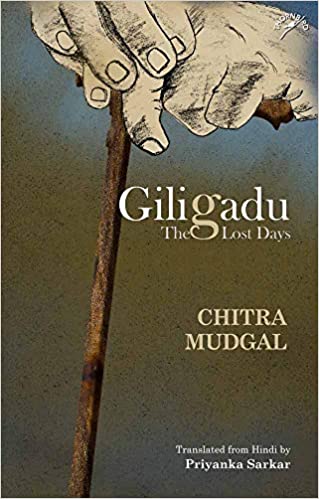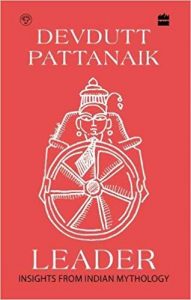Giligadu- The Lost Days by Chitra Mudgal (translated from the Hindi by Priyanka Sarkar and published by Niyogi Books) is prima-facie a novel on growing old. But delve deeper and there are universal themes that will resonate with one and all.
Jaswant Singh has left his home in Kanpur after the demise of his wife, and lives with his son in Delhi. A chance encounter introduces him to retired Colonel Vishnu Narayana Swamy. They become close friends, though they are as different as chalk and cheese. Swamy has everything that Singh doesn’t- a wonderful loving family who care about his needs, doting grandchildren and good health. Singh on the other hand faces all the predictable problems of old age- health issues, feeling neglected by his son and daughter-in-law and so on.
The only bright spot in Singh’s life is his new-found friend. The narrative follows their friendship, even as events unfurl in Singh’s life that add on to his despair. Will there be a saving grace?

It is a story that is familiar to us- the coming of old age and learning to come to terms with the challenges and the tribulations of growing old. As a reader, one feels empathic towards Singh, who has to endure the highhanded behaviour of his son and daughter-in-law. We feel for him and his helplessness. Why, we would know many people from our own lives and social circles who could easily fit in the description of Jaswant Singh! The relatability of the characters makes the book strike a chord with the reader. We would also be able to place the exuberant Colonel Swamy amongst familiar faces. The maid Sunguniya, who served Singh at his home in Kanpur is another background character I found very endearing. The author’s ability to make the characters so relatable makes this book very engaging.
One of the themes that deeply resonated with me when I read the novel is the sheer helplessness of old age that was made evident in the lives of the characters. Singh is dependent on his son and family for many things, including key life decisions. Sunguniya finds it difficult to call her employer, since she was always dependent on someone else for operating the phone. But, Colonel Swamy seems to breathe independence in every breath! Through the contrast between the two men, the story presents the truth about change and evolution. It lays bare the issues that the aged have to face when they are dependent on their children. It also highlights the fact that older generations have to and need to move with the times to avoid being redundant. Old age is an age of wisdom. But it is also an age of regrets, as is brought out by some of the instances in the book.
When I started reading the book, I thought the plot was more or less predictable and straightforward. But no. There is an element of surprise, which really propels the plot to an entirely new dimension. I felt that the author has been successful getting under the skin of Singh. The words beautifully capture his sense of anger, loss, regret, defiance and also hope, towards the end, when “He felt like he had been touched by a divine force,”.
When you complete reading the book, no matter what your age, I’m sure you’ll have a smile on your face and a renewed sense of hope! this could be in a sense a novel on growing old, but shows that one can still always be young at heart!




